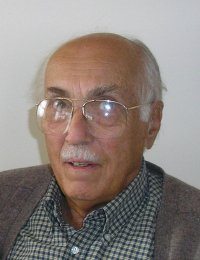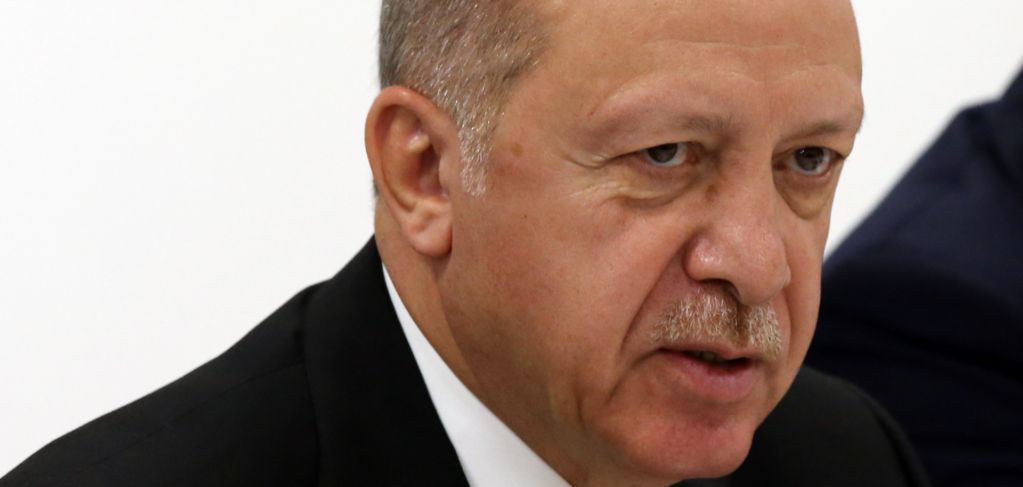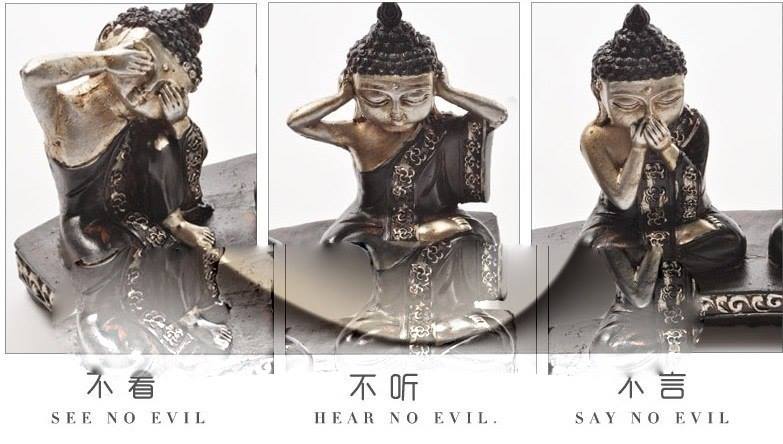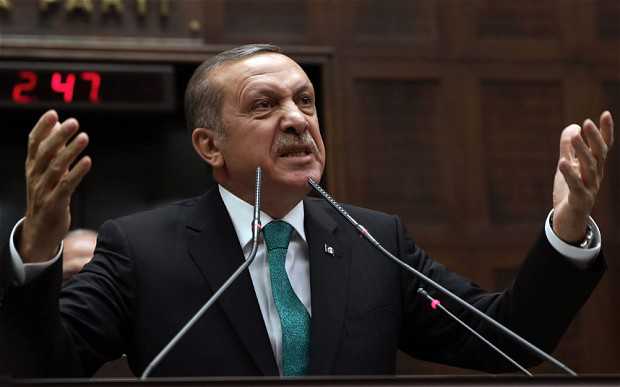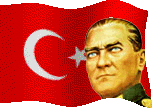
by Stanford J. Shaw
Lecture given at Koc University, Istanbul, on 4 November 1998 as part of the celebration of the 75th anniversary of the foundation of the Turkish Republic.
During the tumultuous years that followed immediately after World War I, many independent states were established in Europe and the Middle East. Almost all of these were set up by decree of the Great Powers of Europe and America during and after the Paris Peace Conference. They were gifts by the Powers to the different peoples involved. These gifts, however, had many strings attached. The most important of these was the insistence of the Powers that many of the supposedly independent states that they set up be subjected to their control through a system of Mandates or other supervisory systems. These were justified on the grounds that the newly independent states lacked the ability and experience to govern themselves and that they needed to be trained and educated by what the Powers considered to be their own superior ability and experience before they could finally achieve full independence in the very indefinite future. These mandates were in fact disguised efforts by the Powers to continue or establish colonial control over the states who were being promised their full independence. The results of this arrangement were variable. Most of the supposedly independent states continued under the control of the one Power or another until the end of World War II, and even after they emerged with full independence following the war, they continued to suffer from grave internal difficulties which made the achievements of independence seem illustory indeed.
There was only one state that was not given its independence by the Powers after World War I. That state was Turkey. The Powers of Europe, and in particular their most powerful member, Great Britain, in fact decided that the Turks lacked the ability to ever govern themselves and that most of the territory in which Turks formed the majority of the population should in fact be turned over to the other peoples so that the Turks would remain a subjected minority in areas where they in fact constituted sizeable majorities. Even in the small section of central Anatolia which, according to
the Treaty of Svres, was to remain under a presumably independent Turkish state, that state was to be subjected to such control by the Powers that for all practical purpose it would have been no more than another colony in the colonial empires of England and France.
That this arrangement was not carried out was due, not to any revision of policy by the Powers but rather to the will of the Turkish people who, alone among the subject peoples who emerged from the ruins of the Ottoman Empire, fought for an d gained their own independence, an independence which was real because it had been secured by their own effort, not by the grant of the Powers. The Turkish Republic was the only Successor State of the Ottoman Empire, which was formed despite the contrary will of the Powers. The Turkish Republic was the only successor state of the Ottoman Empire that was an earned Republic, a state achieved through he will and action of its people in what amounted tot he first War of National Liberation in the twentieth century. The Turkish War of National Liberation set the pattern which would be followed throughout the later years of the century by many people whom the so-called Great Western Powers sought to subject and control.
How was this accomplished? And how in the factors of success did the Turkish people point the way for their future and the future of the Republic that they had created? Let us look at a number of factors.
1.A Very important factor of success was disunity among the Allied Powers that occupied Istanbul and other remnants of the Ottoman Empire following World War I. Great Britain had supplied most of the men and supplies in the occupation, and its commanders therefore dominated the occupation, placing the other Allied commanders in what amounted to subordinate positions, and arranging the occupation in such a way that British economic and political objectives would be achieved at the expense of those its Allies.
British Prime Minister David Lloyd George supported the establishment of a greater Greece, including Izmir, much of Southwester Anatolia and even Istanbul because of the feeling that Greece could be controlled by Britain and it therefore would serve to preserve British domination of the entire East Mediterranean area even after the formal occupation came to an end. But these promises violated similar promises made to Italy in secret agreements signed during the war which turned Izmir and much of southern Anatolia over to Italy as part of its ambition to establish its own Italian empire in the Eastern Mediterranean. Italy therefore initially vetoed the British efforts to turn these territories over to Greece. When Italy boycotted the Peace Conference for a time due to Allied decisions to turn Trieste and much of the Adriatic coast over to the new Yugoslav state they had created, the Allies took advantage of the Italian absence to authorize the Greek invasion of Anatolia in order to enable it to seize these areas by force and thus deny them to Italy. Italy was allowed to occupy the south Anatolian coast, including Antalya and Adalya, but in response to the loss of Izmir to Greece, it began helping the Turkish War for National Liberation. It turned over its won weapons to the Turkish national army which Ismet Inn was forming near Ankara; it allowed Turkish agents to got to Italy and use Italy as a base to buy airplanes and other weapons, to ship them in Italian boats to Antalya, and to transport them through the Italian zone of occupation to the newly formed Turkish national army. It also received in its zone of occupation thousands of Turkish refugees from both the Greek invasion and the French occupation of Southeastern Anatolia, giving them food, housing and medical assistance and then sending them back to join the growing Turkish resistance.
France also began to quarrel with Britain over the results of the occupation. The French commanders in Istanbul increasingly resented British domination and began to turn information regarding British and Greek military movements over to Turkish nationalist agents. In the east, while France initially sought to secure its own colonial ambitions by occupying Cukurova as well as Syria, it resented the fact that Britain had forced it to give up the rich oil fields of Musul and Kerkuk which had been promised to it during the war. France also was embarrassed by the behavior of the Armenian Legion that it brought with to occupy Cukurova. The Legion began massacring large numbers of Turks throughout the area. France therefore deserted the Alliance by signing the separate peace treaty of Ankara with the Turkish nationalist government. Even more important, as it evacuated Cukurova, it turned almost all its cannons, weapons and ammunition over to the Turkish nationalists, who quickly shipped them across Anatolia to the growing Turkish national army.
Then there was Russia, which at the time was embroiled in a civil war fought between the Bolsheviks led by Lenin and Stalin and the so-called White forces, which sought to restore the Czarist of the past. The Bolsheviks had renounced its claim to the territories of Istanbul and Eastern Anatolia, which had been promised, to Russia by the wartime agreements among the Allies, but they still maintained a long-range objective of gaining control, not only of Istanbul but also much of Turkey, by turning the Turkish national movement into a Communist revolution. They wanted to transform the new Turkish State into a Communist satellite and make it the spearhead for spreading communism among all the peoples of the East who had been or were being colonized by the colonial powers as part of the peace settlement. They also had a short range objective of stopping the flow of arms and men which the British and the Greeks were sending through Istanbul and the Black Sea to support the White armies in their struggles against the Bolsheviks. I might point out in this respect that the British arms were accompanied by large numbers of Greek soldiers sent to show Greek support for its Orthodox cousin Russia, and that these were used by the White army to massacre thousands of Jews as well as Russian Christians who supported the Bolsheviks in Southern Russia. Thousands of people were killed, and thousands more were forced to flee across the Black Sea to Turkey, including in the end the commanders and last remnants of the White armies. In any case, both to stop the flow of western arms to the Whites, and to communize the new Turkish national movement, the Bolsheviks sent large quantities of arms to the Turkish national army. The newly established Armenian Republic refused to allow these arms to pass through its territory by land, so for the most part they were sent through the Black Sea, mainly to Trabzon, from which they were sent overland to the Turkish national army.
Of course, Mustafa Kemal and the Turkish nationalists were happy to accept weapons and money whoever was willing to give them, but they had absolutely no intention of allowing the Bolsheviks to communize the Turkish Revolution. And the Bolsheviks themselves, when they saw that their efforts to establish a Turkish Communist Party were being suppressed, decided that it was more important to them to end the British occupation of Istanbul and the British use of Istanbul to supply the Whites than it was to communize Turkey, so they continued to send arms and money even after the Turkish Communists were suppressed in Turkey.
2.A second factor of success was the nature of the Allied occupation itself. While initially the British allowed what was left of the Ottoman government to continue its operations in Istanbul, the fact that many members of that government secretly helped the Turkish national resistance in Anatolia, and that the newly elected Ottoman parliament supported and confirmed the Turkish National Pact, led the British to take over the Ottoman government and imprison many of its leaders. This harsh occupation caused many of those who had initially supported the occupation, as well as those who had secretly helped the nationalists, to flee to Anatolia where they joined the Turkish national movement. British discrimination against Turks in the occupation areas added to Turkish resentment and disabused most Turks of the idea that many of them held that the Allies had come to help them. Even more, however, it was the utter brutality of the Greek occupation of Southwestern Anatolia and of the French occupation of the Southeast, which contributed in major way to determination of most Turks to resist the entire occupation. When the Greek army landed in Izmir, and as it advanced through Anatolia toward Ankara, it slaughtered thousands of Turkish Muslims and Jews with the major assistance of the Greek peasants and urban dwellers who lived in the area and thought the time had come to openly express their hatred of Islam and Judaism which they had concealed for centuries. I might add that later on as the Turkish national movement drove the Greeks out of Anatolia, they burned most of the towns and cities that lay in their path, including the great port of Izmir, in the process establishing the pattern which is followed today by the Serbs as they slaughter and burn Muslim areas in Bosnia and Kosovo, and then blame the slaughtered people for their own destruction.
At the same time in the Southeast, while the French themselves wanted to show the Turks the benefits of French rule, there were very few Frenchmen in the French occupying army. France had just emerged from the devastation of World War I. Thousands of French soldiers had been killed. The country itself had been the scene of most of the devastating battles of the war, so that it lay in ruins. They occupying army therefore consisted mainly of colonial troops from Black Africa assisted by what was known as the Armenian Legion, composed of young Armenians brought from Egypt as well as Europe and America, and committed to a campaign of vengeance against Turks and other Muslims. So while the French tried to establish order and security in the towns of Cukurova, the African troops and even more members of the Armenian Legion spread out in the countryside, ravaging, raiding and killing to the point where the French commanders themselves were outraged. After trying to bring the Legion under control, they finally dissolved it and at least tried to send its members away in an effort to end the carnage, which was being carried out in the name of France. Bu the memory of what had happened stirred most Turks to resist, not just the French occupation, but the entire occupation throughout Turkey.
3.A third factor of success lay in Greece. Just as the Greek War for Independence from the Ottoman Empire in the early years of the nineteenth century could not have been achieved without the help of the British navy, so also the Greek army that invaded Anatolia could not have advanced so rapidly after World War I had it not been for major military assistance given it by Great Britain. But back in Greece these very successes emboldened the Greek people to throw out Prime Minister Venizelos and his government, which had been installed by a British invasion of Greece in 1917 and to bring back Greek King Constantine, who had been dethroned by the British because of his determination to keep Greece neutral or have it join Germany during the war. The restoration of King Constantine in Greece came just in time when the famous British historian, Arnold Toynbee, went to Anatolia as a reporter for the Manchester Guardian and began to publish accounts of the barbarous conduct of the Greek army as it advanced in Southwestern Anatolia. This caused the British people to awaken to the fact that Greek barbarism was being carried out with the material as well as moral support of Great Britain, and when combined with their revulsion against the restoration of the pro-German King Constantine, led Britain to end its support of the Greek invasion of Anatolia. This involved not merely the cessation of assistance with money and arms, but also prohibitions against Greece sending supplies to its Anatolian expeditionary force from the Sea of Marmara, leaving it to send supplies only from its occupation base at Izmir, in caravans and trains shipments which were easily attacked and destroyed by the Turkish cavalry.
4.A fourth factor in Turkish success was the ever present racial and religious prejudice against Muslims in general and Turks in particular by the Christian nations and people in the West. This, of course, had existed ever since the time of the Prophet, and particularly since the time of the Crusades, and I am sorry to say it continues to exist right to this present day. However, much fundamentalists Christians dislike Jews for not accepting Christ as their Savior, they dislike and disdain Muslims even more for following what they consider to be a false religion. Added to this is discrimination against Turks, who for most Christians have been the principal symbol of Islam, again right to the present day. It was as a result of this prejudice that Europe built up the myth of “the terrible Turk” and readily accepted all the myths of massacre and persecution spread by non Muslim immigrants from the Ottoman Empire, completely ignoring the massacre as inflicted on Muslims by the Russian expansion into Central Asia and the newly-independent Christian states of Southeastern Europe, starting with Greek Revolution in the early 19th century which massacred thousands of Muslims and Jews in the process of creating a homogeneous Greek and Christian state. Insofar as this prejudice effected Turkey following World War I, it led the victorious Allies to two fateful policies. First of all, as we mentioned already, the Allies concluded that the Turks as Muslims lacked the ability to ever rule themselves, and that therefore not only non Turkish parts of the Ottoman Empire but also areas where the Turks lived as sizeable majorities had to be placed under the control, either of the Powers themselves, or under the non Muslim peoples who were promised their own independent states regardless of the makeup of the people in the territories which were being given to them. The second result of the racial and religious prejudice of Christian Europe was t think that they could impose such draconian arrangement on the Turks with a relatively small expeditionary force which at its peak numbered no more than 50,000 men, aside from the approximately 100,000 men which were to be provided by Greece for the occupation of western Anatolia and its annexation to Greece. Insofar as the Allies were concerned, not only were the Turks incapable of ruling themselves, but they also were incapable of defending themselves, and would be forced to accept whatever the Allies dictated as their fate. Of course, the Allies were entirely disabused of this idea by what followed.
All of these factor of success could not have automatically brought success to the Turkish War of National Liberation had it not been for the ability of the Turkish people to take advantage of them to neutralize and/or drive out the occupying powers. How were the Turks able to accomplish this? 1.First and foremost, there was the reaction of the Turkish people to the harshness of the Allied occupation. Throughout the 19th century, those Turks who supported Ottoman reform looked to the democratic nations of America and Western Europe as the model of the rejuvenated Empire they hoped would emerge. They thought that these states would selflessly give them assistance they needed to create a new and modern Turkish state on the ruins of the Ottoman Empire. They thought that point 12 of Woodrow Wilson’s 14 points announced in January 1918, which stated that all the subjected people of the Ottoman Empire, like others, were entitled to their own independence, would apply to the Turks as well as to the other people who had been subjected by the Ottomans. However, the brutality of the occupation along with the realization by most Turks as a result that the Allies had come to Turkey to subject the Turks, not to liberate and modernize them, caused most Turks to unite in the Turkish War of National Liberation. The national movement thus united Turks who were parts of a wide political religious spectrum. There were supporters of the Ottoman Sultans, advocates of a Republic, secularists, religious leaders, who subordinated their personal desires to the common objective of defending the Turkish people and enabling them to defeat the effort to subject them to foreign rule. Without this unity, the Turks could never have taken advantage of the factors of success.
2.The second factor that enabled the Turkish people to take advantage of the factors of success was the unity of the leadership achieved among leaders and followers alike, the willingness of the various Turkish political, religious, and military leaders to work together for the good of the nation as a whole, and the willingness of the Turkish people do whatever was necessary to support their efforts, whether by joining the national army or by providing it with food, supplies and weapons. There were many leaders who lead successful resistance movements in various parts of Thrace and Anatolia early in the war of National Liberation, to name but a very few Kzam Karabekir and Fevzi Cakmak in addition to Mustafa Kemal Atatrk and Ismet Inn. There were all the leaders of the different local resistance groups that arose throughout Thrace and Anatolia in reaction to the occupation, groups that were later given unified names, the National Forces, even though they were anything but unified at the time. Each of them had his own ambitions and policies. But the very reality of the Allied occupation made it essential for them to work together. That they did so was due to the political genius of Mustafa Ataturk. Mustafa Kemal’s greatest contribution tot he Turkish War of National Liberation lay in his ability to use the dangers that the Turks faced to bring all the leaders together, to get them to postpone their individual ambitions and political and religious goals, and to get them to work together for the common cause. How difficult a task this was and how brilliant Mustafa Kemal’s success in getting all these divergent individuals and groups to unite under his leadership is shown by the disunity that emerged among the same leaders as soon as the war was won and the Turkish Republic was established, and I might add by the political disunity which has seriously damaged Turkey’s position in the world in recent years.
3.A third factor which enabled the Turkish people to win out over those who wanted to oppress them was willingness to abandon the past, to lay into the dust of history the Ottoman Empire which had shone so brilliantly well into the nineteenth century but which had been condemned to dissolution of the rise of nationalism and democratic liberalism since the time of the French Revolution and the industrial progress of Europe. The multinational Ottoman Empire which had done so much to enable peoples of different ethnic origins to live together peacefully over many centuries had become obsolete due tothe spread among its Christian subject peoples of the kind of nationalism which dictated not only that they had the right to become independent, but that all those who did not share their ethnic myths and their religion had to be massacred or driven out. The nationalistic policy of ethnic cleansing which has been followed by Serbia in recent years, first in Bosnia and now in Kosovo, was in fact born during the Greek Revolution early in the 19th century, when the Christian peoples living in what has become Greece adopted the ancient Greeks as their ancestors, borrowed ancient Hellenic culture as their own, and then went on to massacre or drive out all those who did not accept their vision, including not only Muslims but also Jews. The same policies of ethnic cleansing were followed by the Bulgars, the Rumanians, the Hungarians and the Serbs in their drive to create independent states in subsequent years. The excesses of the Greek invasion of Anatolia in the name of the Paris Peace Conference showed the Turks that is they were to survive and to avoid being subjected to extermination in their own homeland, they would have to give up the ideal of the multiethnic and multi-religious state which they had maintained for so long in the Ottoman Empire and instead create their own national Turkish state, which could be done only if the last vestiges of the Ottoman Empire were abandoned, along with the Sultanate and the Caliphate. While the multi-ethnic demographic composition of the Ottoman Empire was no longer valid for the new state, the Republic turned its attention to defining being Turkish not in terms of race or ethnicity, but regarding those who were of the land and shared common goals of an independent, progressive, contemporary Republic which would be apart of the family of nations, this creating an inclusive rather than an exclusive identity for Turks.
4.A fourth reason that the Turks were able to use conditions to their advantage was their determination to follow policies which they felt were good for their own nation and to ignore the opinions and desires of the Great Powers. This would seem to be obvious, but it was not at the time. Throughout the Tanzimat reform era of the nineteenth century, many Ottoman leaders looked to Europe as the model for the reforms they wanted to follow. They considered Europe to be more advanced, and they sought to create an Ottoman Empire in the image of Europe. This was one of the many reasons that the Tanzimat was not entirely successful, since in many areas it failed to adopt European institutions to meet Ottoman customs and traditions. Even after World War I, however, when the European powers were occupying the country, many Ottoman leaders felt that Europe knew best, Europe was more advanced, the desires of the Europeans had to be followed, and that if the Europeans said that Turks were unfit to govern themselves, then so be it, the diktat of the Powers had to be accepted. One of the Powers, either Britain or the United States, had to be accepted as a Mandatory power to make the Turks capable of governing themselves. Had this opinion been accepted, there would have been no Turkish Republic, at least until the end of World War II. It was because Mustafa Kemal Atatrk and his colleagues refused this idea, refused the plan to establish a British or American mandate, and in the process refused to accept the opinions of the westerners regarding Turks that Turks were emboldened to resist, and resist successfully.
